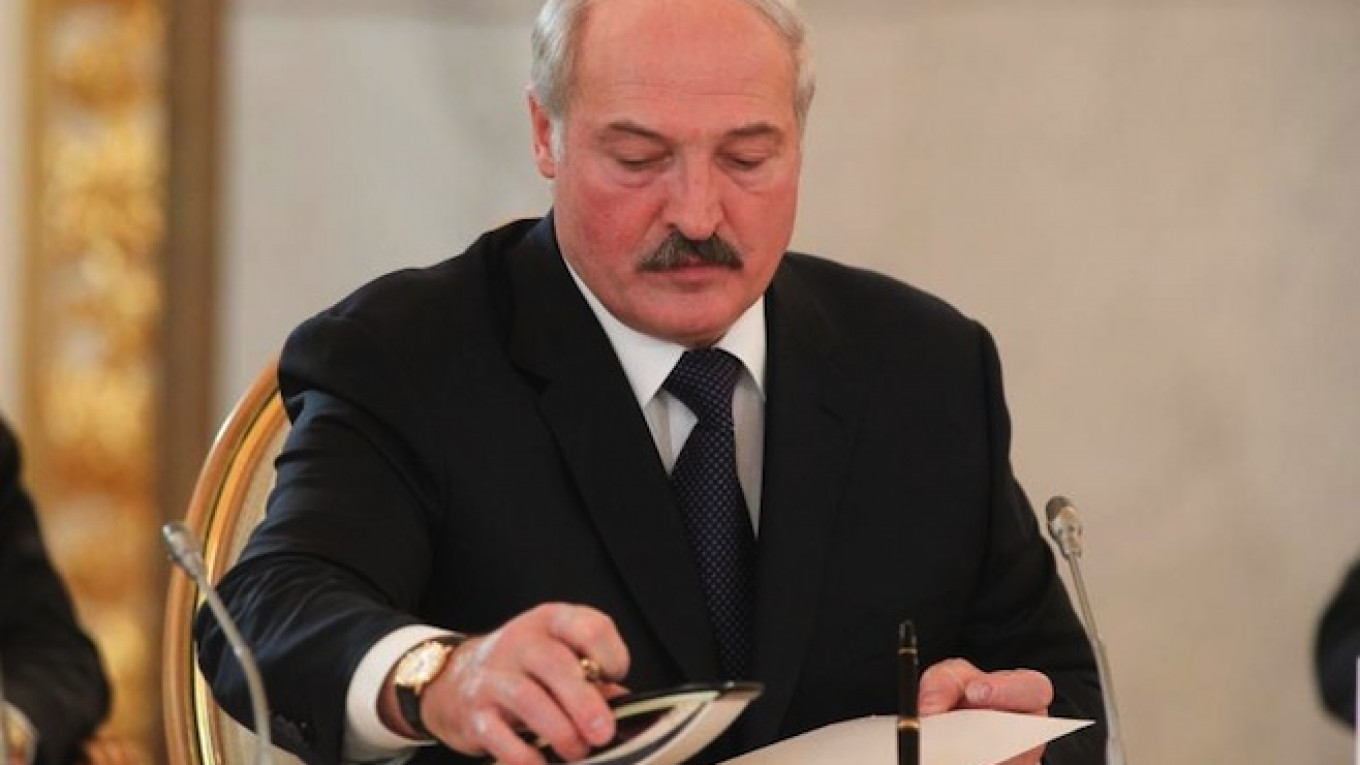Belarussian President Alexander Lukashenko has signed a decree imposing fines for being unemployed in a Soviet-style attempt to crack down on tax evaders and people working in sectors of the economy outside of state control.
The decree, signed Thursday, aims to “stimulate able-bodied citizens to engage in labor activity and fulfill their constitutional obligation to participate in financing state expenditures,” a statement published on the Belarussian presidential website read.
Working-age adults who live in Belarus, whether as citizens or permanent residents, would have to pay a fine unless they “participate in financing state expenditures” for at least 183 days a year. Acceptable forms of helping the state with its expenses include self-employment or being a full-time student, according to an explanatory note to the decree.
The Belarussian government, which controls much of the country's Soviet-style economy, has been contemplating the measure for several years, planning what Russian business daily Vzglyad described in 2013 as an “unemployment tax.”
Lukashenko endorsed a legislative ban on unemployment last fall, proposing to bring back the Soviet-era term of “social parasitism,” and pledging to design measures to punish people who “intentionally don't work,” according to media reports.
Right to labor
The Soviet Union made “parasitism” a criminal offense before the law was abolished in the 1990s amid the political and economic liberalization undertaken by Mikhail Gorbachev. The law mostly targeted people working in private enterprises that were illegal under the Soviet regime, as well as prostitutes and political dissidents, such as Nobel Prize-winning poet Joseph Brodsky, who went on trial for “social parasitism” (“tuneyadstvo”) in the 1960s before being forced to emigrate.
The “right to labor” was enshrined in the Soviet Union's constitution as a basic right of its citizens.
“Citizens of the U.S.S.R. have the right to labor – that is, to receive guaranteed work, with salaries commensurate with its amount and quality,” various editions of the Soviet Constitution said in a passage left virtually unchanged through the decades.
Similarly, Belarus's post-Soviet Constitution proclaims that “citizens of the Republic of Belarus are guaranteed the right to labor, as the most dignified form of human self-realization.”
Lukashenko's decree Thursday sets the fine for being unemployed at “20 base units.” The amount is equivalent to 3.6 million Belarussian rubles ($245), Interfax news agency reported, citing the president's press service.
People under the age of 18 or over the retirement age of 55 for women and 60 for men would be exempt, according to the decree.
Opponents of the decree posted a petition to revoke it on the change.org website. The petition, which had garnered three dozen signatures by Friday morning, cited another provision of the country's constitution, which also requires the state to “create conditions for the population's full employment” and bans “forced labor,” unless ordered by court or required in a emergency situation.
Belarus has struggled to find enough workers to fill jobs in its state-controlled economy. The labor shortage has prompted the country to place a series of restrictions on the rights of workers to leave their jobs, such as a reported 2012 ban on resigning for employees in the state-controlled timber industry, and a similar measure for farm workers last year.
A Message from The Moscow Times:
Dear readers,
We are facing unprecedented challenges. Russia's Prosecutor General's Office has designated The Moscow Times as an "undesirable" organization, criminalizing our work and putting our staff at risk of prosecution. This follows our earlier unjust labeling as a "foreign agent."
These actions are direct attempts to silence independent journalism in Russia. The authorities claim our work "discredits the decisions of the Russian leadership." We see things differently: we strive to provide accurate, unbiased reporting on Russia.
We, the journalists of The Moscow Times, refuse to be silenced. But to continue our work, we need your help.
Your support, no matter how small, makes a world of difference. If you can, please support us monthly starting from just $2. It's quick to set up, and every contribution makes a significant impact.
By supporting The Moscow Times, you're defending open, independent journalism in the face of repression. Thank you for standing with us.
Remind me later.






